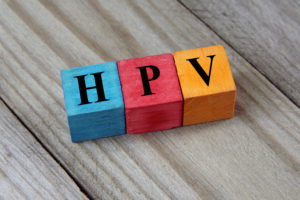By Iris Farrou
05 Aug, 2022
Lifestyle Tips, Prevention, Procedures, Queer Health, Reproductive health, Sexual health, Women's Health
BRCA Gene, Cancer Screening, Cervical Health, how often pap smear, How often should you see OBGYN, HPV, Pap smear, Regular STD Testing, Screening, Test, When Should I Start Seeing a Gynecologist
The most common gynecological care procedure may be the Pap Smear—and it’s no secret that
it revolutionized women’s health and made it widely accessible—but a close second is cervical
cancer screening. Now, don’t let the words scare you: it doesn’t mean you have to get this
screening done if you are suspecting you have cancerous cells. It simply means this screening
tests specifically for evidence of HPV in the uterine cervix. A Pap Smear, on the other hand, tests
for precancerous cells on the cervix—cells that may turn cancerous if not treated correctly.

How does it happen?
Cervical cancer screening is a similar procedure to a Pap Smear: they both happen in a clinic, a
medical office, or a community health center. It’s common to get those tests done during a pelvic
examination. Much like the Pap Smear, using a vaginal speculum, the medical professional will
collect cells and mucus from the cervix and vagina and send them for lab testing. A Pap Smear
checks to see if the cells look generally normal. A cervical cancer screening specifically tests the
cells for HPV.
Why do I need it?
Remember the primary goal of a cervical screening is to routinely look for abnormal cervical
cells with severe cell changes so they can be removed, and cancerous cells can be stopped from
developing. It is a routine examination for anyone who has a uterine cervix and is sexually
active. Nearly all types of cervical cancer are caused by sexually transmitted HPV. A secondary
goal of this screening is to identify cervical cancers at an early stage so they can be treated
successfully and avoid further problems.
When should I get tested?
Most sources suggest that you should start getting Pap Smears and Cervical Screenings after the
age of 21. However, many people are sexually active before that age—you should be getting
regular routine examinations as soon as your become sexually active. The standard suggestion is
to be screened every 3 years, considering your results come back normal, but if you have
personal concerns and the ability to be tested every year—better safe than sorry!
If you are older than 65 and have had regular tests and satisfying results for several years in a
row or have had your cervix removed for non-cancer related reasons, you may not need to be
screened anymore. However, that is still a personal decision, and you are entitled to be keeping
as many tabs on your health as you want.
More
 Genital warts are an important topic because they are the most commonly sexually transmitted disease. Genital warts are caused by the genital human papillomavirus (HPV). According to the Center for Disease Control and Prevention (CDC), roughly 79 million Americans are infected with HPV. Many people infected with HPV will not experience visible warts or any symptoms; however, even without symptoms HPV can lead to higher risk of developing certain types of cancer.
Genital warts are an important topic because they are the most commonly sexually transmitted disease. Genital warts are caused by the genital human papillomavirus (HPV). According to the Center for Disease Control and Prevention (CDC), roughly 79 million Americans are infected with HPV. Many people infected with HPV will not experience visible warts or any symptoms; however, even without symptoms HPV can lead to higher risk of developing certain types of cancer.
Signs and Symptoms
Genital warts appear as bumps or groups of bumps in the genital area. They can be large, small, raised, flat, or clustered. Typically genital warts are diagnosed from a visual exam by a healthcare provider. In most cases, HPV will go away on its own and will not cause health problems; however, some cases can be associated with cervical, vulvar, anal, and penile cancers.
Prevention
The only completely effective way to prevent an HPV infection is abstinence. Additionally, monogamous relationships between two people who have been recently tested and disease-free is also viewed as relatively safe. The virus is spread from skin-to-skin contact, so latex condoms do not offer full protection, though condoms can help reduce the chance of being infected, when used correctly.
The HPV vaccine is also available to everyone ages 9 to 45, although it’s recommended that children ages 11 or 12 get the vaccine before they become sexually active. The HPV vaccine protects against genital warts and/or different types of HPV that can cause cancer.
HPV and Pap Smears
Woman ages 21 to 65 should schedule routine screening for cervical cancer through Pap smears. Woman with the HPV virus will need more frequent Pap smears since the presence is associated with cervical dysplasia and cervical cancer.
Treatment
Treatment varies by case, but can include applying chemicals or creams, in an effort to get the warts to stop growing and go away. Other treatments include freezing, burning with electric current, or removing them with a knife or wife and electricity (LEEP). While these procedures may sound scary, they will remove the warts, thus lowering the symptoms and chances of passing them on.
Talk to your doctor
If you think that you have genital warts or if you are interested in measures to protect yourself from HPV, talk to your doctor. Genital warts are nothing to be embarrassed about. Your OB-GYN is knowledgeable in prevention and treatment and can help put you at ease.
More


 Genital warts are an important topic because they are the most commonly
Genital warts are an important topic because they are the most commonly